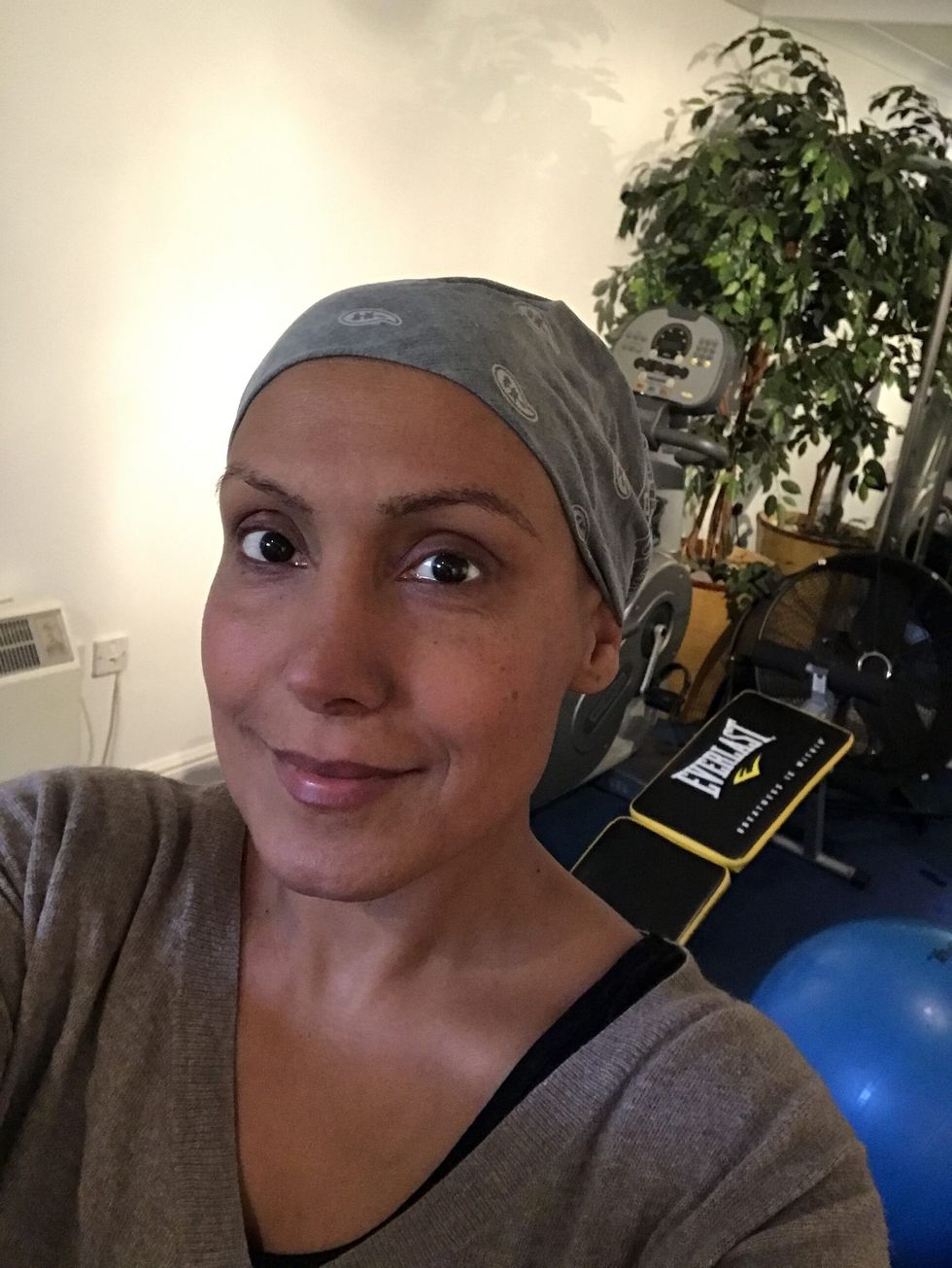AT THE end of the video for her new song, Gone, British Asian music pioneer Veronica Mehta transforms into a phoenix rising from the ashes – a symbol, she said, of her “second chance at life” after a gruelling battle with cancer.
Mehta was riding high in her career after collaborating with ace producer Rishi Rich on the albums Theen and Rush and gaining popularity in Bollywood after duetting with Juggy D for the lead song in the smash-hit film, Hum Tum, in 2004.
However, in 2016, while pregnant with her third child, Mehta’s life and career came to a crashing halt.
She was diagnosed with grade-3 breast cancer, which tends to grow and spread more quickly than lower-grade cancers.
“I was devastated. I felt like someone had stabbed me in the heart,” Mehta told Eastern Eye. “I was 35 weeks pregnant. All I could think about was my children, including the one I was about to give birth to.

“I didn’t understand if the cancer had been passed on to my unborn child. I didn’t know what was going to happen to me or what would happen to them.”
Mehta, 49, who lives in Uxbridge with her husband, Bobby, and children, Mya, 13, Esha, 11, and Veer, seven, said she wanted to do something that would “turn that negative into a positive”.
“Music has always been my first love, so I went back to the studio with Rishi Rich, and what came flooding out in a rush of emotions was the song, Gone,” she said.
Gone, and the AI video that accompanies it, tracks her cancer journey from her home life in London at the prime of her career to the moment the dark shadows of a cancer diagnosis threaten to envelop her.
It follows her to places in Mumbai – film studios and a special temple – and to New York as part of a huge US tour.
“Those shadows, these scary creatures, are full of fear, but they also push me to fight,” she said.
“And then I come back to my life – what I love to do – and right at the end, I burst into a phoenix, which represents rebirth and a second chance at life.”
Mehta’s desire to get back to music has in part also to do with the sacrifices she made to gain acceptance in an industry that, in the late 1990s and early 2000s, wasn’t a welcoming place for a woman of south Asian heritage wanting to sing r’n’b, bhangra and hip-hop songs.
“It was a real struggle because nobody wanted to know me, especially being an Asian female who was then making a completely different sound,” she said.
“I would go to gigs which were maledominated and hear things like, ‘What’s a woman doing here? She needs to go back home’. At one show, I even had food thrown at me,” she added.
“Such things only make you stronger and push you to keep striving. Now, people say I’m a pioneer and have created a new sound, but at the time, it was extremely difficult.”
Mehta is working with Cancer Research UK for their Stand Up to Cancer campaign, which aims to help avoid 20,000 cancer deaths a year across the UK by 2040.
In London, this could mean an estimated 1,600 fewer people losing their lives to the disease each year.
Mehta is using her voice to get other south Asian women feel more comfortable being open about their health. She initially found the lump 20 weeks into her pregnancy, but wasn’t too concerned as there was no history of cancer in her family.
She said, “I ate well, didn’t smoke, exercised and didn’t drink a lot.” Many doctors also assured her it was nothing serious.
“Even when they felt the lump, they just said it’s fine. They thought it was a blocked gland and once I started breastfeeding, it would go away,” she said.
“Thankfully, I was very persistent and finally got it checked properly by a breast consultant – that’s when they told me I had breast cancer.
“If I hadn’t pushed for the scan, I wouldn’t be here today.”
She added, “I can’t even put into words what I went through physically, mentally and emotionally. Cancer tries to destroy you and reduce you to nothing.
“I had to have a very intense combination of chemotherapy and radiotherapy. I’ve had several surgeries, including a mastectomy and the removal of nymph modes. I’ve had hormone (endocrine) therapy (a treatment that stops the effect of oestrogen on breast cancer cells).
“To rebuild yourself back up, to do something again with your life, let alone anything in your career, just to be able to be a normal person and just to be healthy, was an incredible feat for me.”

A survey by Cancer Research UK found that women from ethnic minority backgrounds (23 per cent) were more likely to report that they failed to recognise any of the warning signs or symptoms of cancer compared to white women (12 per cent).
Asked what would delay them speaking to a medical professional about their health, ethnic minority women reported feeling less confident talking about their symptoms than white women. A
dditionally, south Asian women are at higher odds of being diagnosed with latestage breast cancer.
“It’s never easy talking about something so private. But I feel that sometimes you have to be the one to be brave, step out and just be able to help others,” said Mehta.
“I’ve got that chance to spread the message. It’s so important that we help others, because cancer affects one in two people. That statistic is just too high.
“By going for check-ups and being a little little more vigilant, many more lives could be saved.”
She added, “There’s still a lot of suppression within our communities [when it comes to women]. We have to speak out and take care of ourselves. We have to do what is right for ourselves.”
For Mehta, her cancer treatment is never far from her mind. She had to have further surgery last September and still has bouts of low energy and a “foggy” mind.
“I went through depression. I still suffer from a lot of anxiety. It’s something that I have to learn to try to cope with. It’s not easy,” she said.
“The fear is there that even if a single cancer cell is floating in my body, it can mutate at any time – it’s never an ‘all clear’ kind of thing. I have to live with and accept that fear.
“But I try to stay very positive. My family and my children are my motivation to stay healthy and to just make the most of this life and do what I love by putting out music and just to stay happy and peaceful,” she said.






 A compelling premise, layered and unpredictable charactersAMG
A compelling premise, layered and unpredictable charactersAMG Anyone who enjoys a gripping story with a diverse cast and unexpected twistsHarperFiction
Anyone who enjoys a gripping story with a diverse cast and unexpected twistsHarperFiction








 As WCL enters its second season, Sharma is scaling upwclegends.uk
As WCL enters its second season, Sharma is scaling upwclegends.uk


 Scarlett Johansson opens up about breaking free from early typecastingGetty Images
Scarlett Johansson opens up about breaking free from early typecastingGetty Images  Johansson reflects on her childhood stardom and evolving careerGetty Images
Johansson reflects on her childhood stardom and evolving careerGetty Images  From Avengers to auteur Scarlett Johansson embraces creative control Getty Images
From Avengers to auteur Scarlett Johansson embraces creative control Getty Images